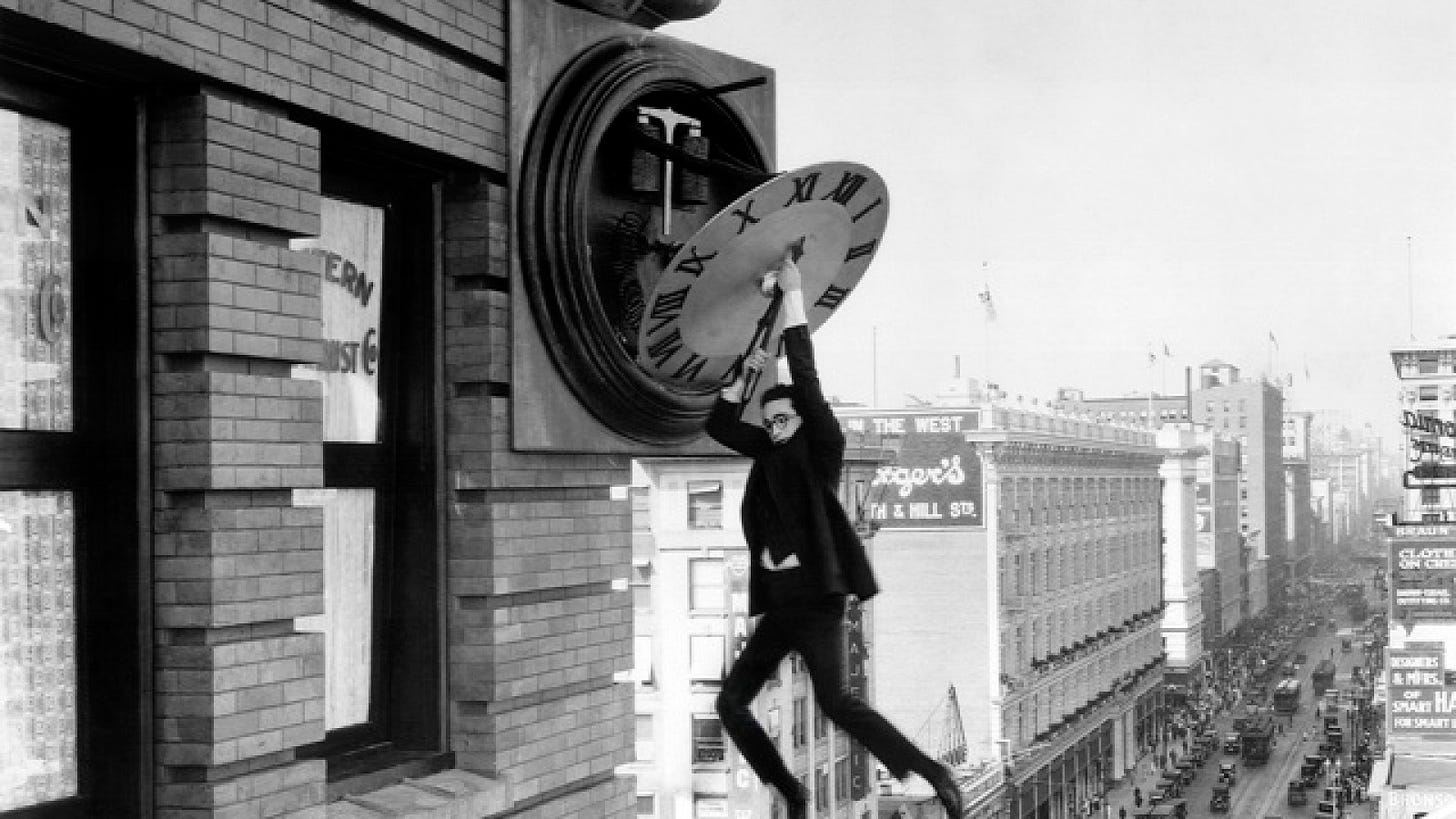I visited New York City for a long weekend to watch Christian Marclay’s The Clock, which I’ve wanted to see since it last appeared in New York over a decade ago.
The Clock is a 24-hour film montage of movie and television clips referencing time, mainly with a clock or watch in the frame. If you’re watching the film at 3:42 PM, the clock in the clip is set to 3:42 PM, and Agent Dale Cooper announces that it’s 3:42 PM.
This clever concept is more than enough to hook me, but Marclay goes further, not only matching up the times from films but often similar scenes and settings: a variety of robbers at 10:35 AM, people among castles at 1:20 PM. (Maybe it was cafes. I was taking notes in the theater.)
The film often plays on the pressures of time: missed trains, ultimatums, and explosions tend to occur right at the top of the hour. Marclay plays off the passage of time throughout the film. My son hoped I would see a Spider-Man in Times Square, instead I saw Peter Parker intercut over 10 minutes or so, failing to deliver a pizza on time and getting fired from Joe’s Pizza.
I watched all seven hours of The Clock available to me at MoMA. (The museum was open from 10:30 to 5:30.) I went directly to the museum from the airport and spent three hours there. The next morning, I went back at the opening and watched another three. On the third day, I went at midday and watched the hour I’d missed, plus a little extra on the edges.
There has been writing about The Clock that says it changes your relationship with time. I started writing this newsletter thinking The Clock was an ecstatic experience, but not one that changed my sense of time.
But I noticed that when I was distracted by a noise outside the theater or someone hunting for a seat, time passed me by quickly. When I was lost in the film, time slowed down — Marclay often edited five to ten film clips into each minute.
After the briefest reflection, I’ve been swayed. The Clock seemed to make me more aware of how I feel time.
I began and ended my experience with The Clock just before 3 PM, allowing me to watch twice what may be cinema’s most iconic clock scene: Harold Lloyd dangling from a high-rise clock in Safety Last, gripping the minute hand.
-Adam, IKEA Cafe, 12:33 PM





You may be interested in a book by Simon Garfield, Timekeepers: How the World Became Obsessed with Time. Simon is also the author of Just My Type, a book about fonts. If you find your interest in time creeping towards obsession, you can add the The Chambers Brothers song, Time Has Come Today to one of your playlists…Time, tick, tick, tick, TIME. Thank you and Ted again for giving us such an entertaining and thought provoking podcast for all of these years (quite a long TIME).
I've seen this! At the Wexner Center for the Arts in Columbus Ohio. Thanks for reminding me! It's fabulous.